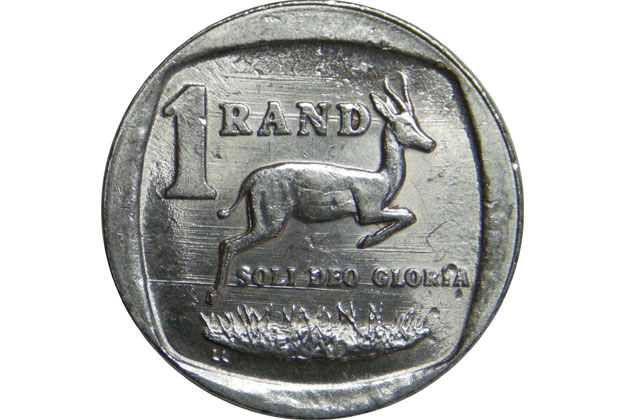
A South African antitrust regulator has said it found that more than a dozen international and local banks colluded to manipulate foreign-currency trades and recommended some of them be fined 10% of their annual turnover.
The Competition Commission identified lenders including Bank of America Merrill Lynch, JPMorgan Chase & Co, BNP Paribas, Credit Suisse Group, HSBC Holdings and Nomura Holdings as having participated in price fixing and market allocation in the trading of foreign currency pairs involving the rand since at least 2007. It referred the case to an antitrust tribunal, concluding an investigation that began in 2015.
“The respondents manipulated the price of bids and offers through agreements to refrain from trading and creating fictitious bids and offers at particular times,” the commission said in an e-mailed statement on Wednesday. “They assisted each other to reach the desired prices by coordinating trading times. They also created fictitious bids and offers, distorting demand and supply in order to achieve their profit motives.”
The outcome of the investigation comes as President Jacob Zuma and his governing ANC step up pressure to break the dominance of South Africa’s largest lenders and improve access to the economy that still eludes many of the country’s black majority almost 23 years since the end of apartheid.
South Africa’s efforts to better regulate foreign-exchange trading follows a price-rigging scandal in which some of the world’s largest banks agreed to pay fines and plead guilty to conspiring to manipulate markets after being accused of using online chat rooms to collude.
“We need to establish if it’s a rogue trader or if this more widespread,” said Patrice Rassou, head of equities at Sanlam Investment Management in Cape Town. “This could result in fines but the Reserve Bank will ensure that it doesn’t cause disruption in our capital markets.”
Bank of America, JPMorgan, Standard Chartered, Commerzbank, Macquarie Group, Australia & New Zealand Banking Corp, Standard Bank Group, HSBC and BNP declined to comment when contacted by Bloomberg.
Investec said it would cooperate with authorities but was unable to comment further because it didn’t have details of their investigations. Barclays Africa Group also said it would cooperate with the authorities, while noting that the regulator had not sought penalties against it. Credit Suisse said it is looking into the matter.
South Africa’s central bank said it viewed the allegations as a serious matter and would allow proceedings to run their course. The tribunal will now notify the banks of the complaint and ask them to respond, Chantelle Benjamin, a spokesman for the body, said by phone. The banks will then file statements and attend a preliminary meeting to set a date for a full hearing, she said.
The commission has previously uncovered collusion in the country’s bread and flour industry, among cement producers and by construction companies that bid to build stadiums for the 2010 soccer World Cup. Those involved were forced to pay hefty fines.
“Collusive practices must lead to consequences such as termination of the services of key management, executive and nonexecutive directors,” said Asief Mohamed, chief investment officer at Cape Town-based Aeon Investment Management. “The banks, if guilty, will most likely be fined and will have a negative impact on earnings and reputation.” — (c) 2017 Bloomberg LP




